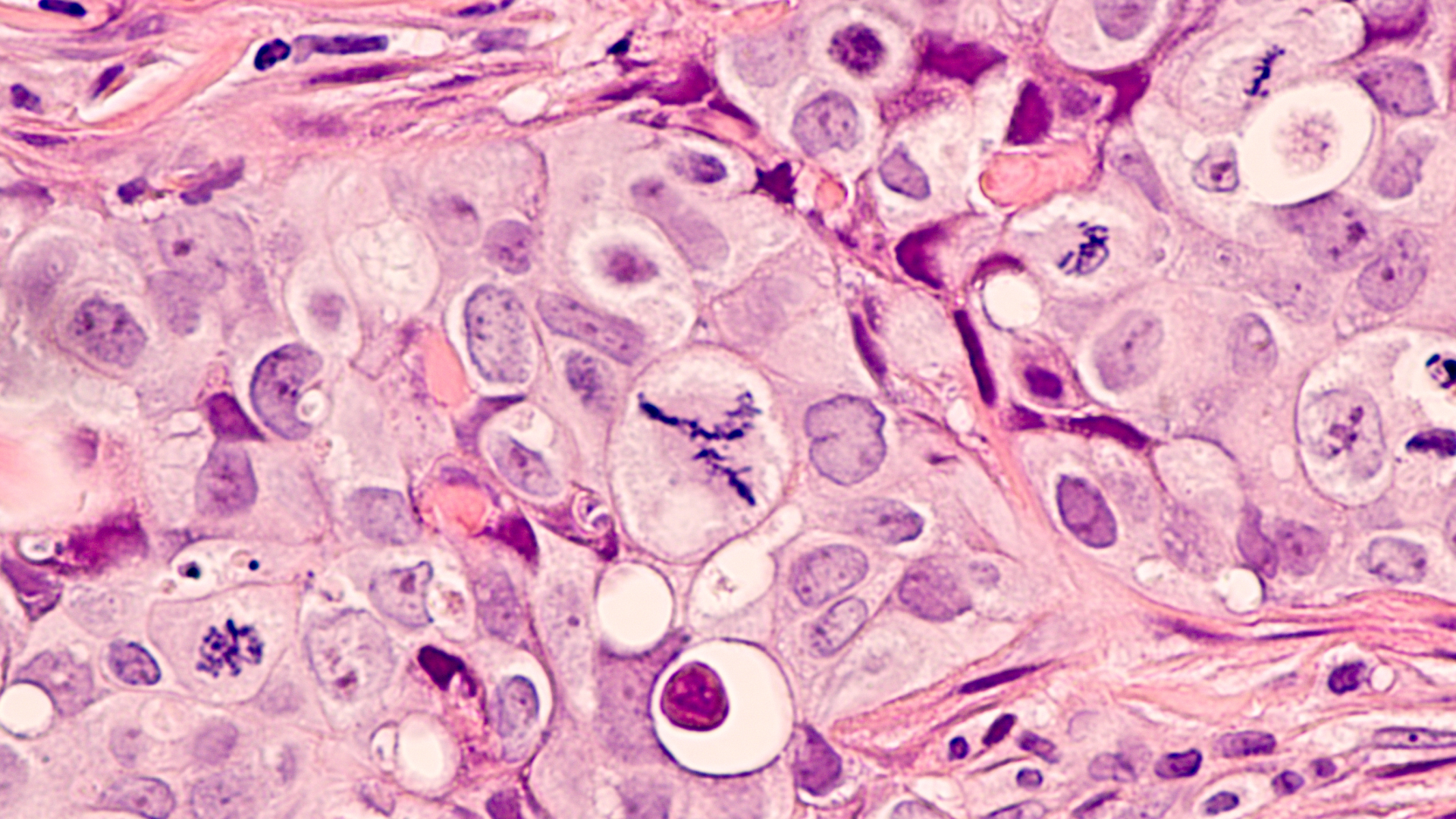Women in East London tend to have poorer breast cancer outcomes than the rest of the UK, are diagnosed later and are more likely to present with aggressive breast cancers at a younger age. With our funding, a new breast imaging technique has been introduced at St Bartholomew’s Hospital which aims to improve the accuracy of diagnosis for women with dense breast tissue – associated with an increased risk of breast cancer – and the results have been positive.
Detecting breast cancer in dense breast tissue
Breast density is a measure of the amount of non-fatty tissue in relation to the amount of fatty tissue within a breast. High levels of breast density, while not uncommon, is present in about half of women up to the age of 40 and is associated with an increased risk of breast cancer. Cancers can be hard to detect on mammograms if someone has dense breasts, and MRI is often required to assess the breasts more accurately. However, MRI can be an uncomfortable experience, particularly for women with claustrophobia. The demands on MRI scanners are huge, and the waiting times to receive an appointment can be long.
In 2019, Dr Tamara Suaris (read our story for Breast Cancer Awareness Month in 2022), consultant radiologist at St Bartholomew’s Hospital, received funding from Barts Charity to introduce an alternative imaging technique called Contrast-enhanced Mammography (CEM), as an additional diagnostic test to patients alongside an MRI, with the potential for it to be an alternative test to MRI.
What is CEM?
CEM is a quick and accurate imaging test which involves injection of an x-ray dye into a vein before mammogram images are taken. If there is a tumour there, the contrast dye will be taken up by the tumour cells. It can improve the accuracy of identifying cancer in a mammogram for women with dense breast tissue.
The impact of developing this service has been significant.
80% of patients responded positively
A patient satisfaction survey asked how the test compared with MRI. In a total of 40 patients, 100% found it acceptable and 80% found that CEM was more acceptable than MRI, with many preferring the short imaging time of the test.
Having patient support, says Dr Suaris, is an important part of developing this service in the future and ensuring patients feel comfortable and at ease. CEM offers a viable alternative for patients who are unable to tolerate MRI for different reasons including claustrophobia. More importantly, this test can be offered quickly, interpreted quickly, and further imaging can be performed at the same time, speeding up the patient pathway considerably.
CEM is a test that we can offer to more women than we can MRI. Being able to offer CEM to patients who are in the breast cancer pathway to help improve the staging of the cancer quickly, can help ensure women can start their treatment earlier. The population we serve in East London is generally younger than most breast units, this means women are often working and may have young families and jobs to juggle. Streamlining pathways and reducing the time spent at imaging appointments helps our patients manage a difficult situation.Dr Tamara Suaris, Consultant Radiologist at St Bartholomew's Hospital
An accurate alternative to MRI
MRI is regarded as the best test to identify cancer and the extent of cancer spread. The team compared the results of an MRI with the results of CEM studies and found them to be as good, without missing any tumours.
They also found that CEM performed better than MRI at not highlighting tumours that may be benign.
The new imaging technique is due to become a standard part of breast imaging within Barts Health NHS Trust, with more equipment and staff training planned in the future.
International recognition
Setting up the service was a significant undertaking, requiring a huge amount of coordination and training. But it has brought teams together and helped teams develop new skills and expertise through additional training. The team have been invited to talk about CEM at conferences around the world, including the annual Radiological Society of North America (RSNA), an international breast imaging conference in November 2023.
Our dedication to breast cancer care
In 2023 we launched our fundraising campaign to bring surgical and other breast cancer services together at St Bartholomew’s Hospital. By bringing expertise together in one place we could significantly improve surgical outcomes and experience for patients. As well as improving breast cancer outcomes for patients today, this would also help make a significant contribution to global research, saving lives for generations.


